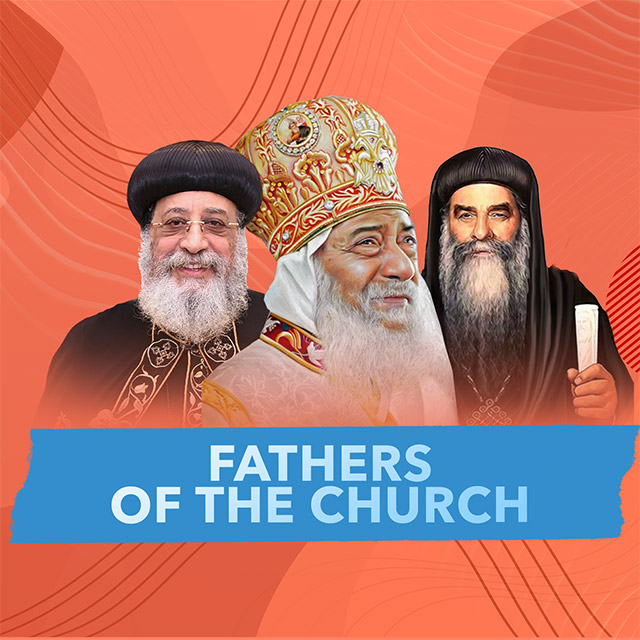The name “Halloween” is derived from “All Hallows’ Eve,” meaning “the night of all saints,” which refers to the night before All Saints’ Day in the Western calendar. The word “Hallow” is an old English term meaning “holiness.” Hence, it is known as the night of “All Hallows’ Day” or “All Saints’ Day.” In a Christian sense, Halloween is the night before All Saints’ Day, celebrated on November 1 in the Western calendar (the Orthodox Church celebrates All Saints’ Day on the Sunday following Pentecost according to the Eastern calendar). The origins of this holiday date back to a period when Rome and Europe were still Orthodox, with traditional celebrations on the night preceding the holiday. Anti-Christian Meanings The mysterious and strange practices associated with Halloween trace back to the Celtic people who lived in the British Isles. For this reason, Halloween was celebrated primarily as a “holiday of terror” in Britain, the United States, and other countries with British-influenced cultures. Recently, Halloween’s well-known traditions of ghosts and witches have spread to other nations. When Christianity reached Britain, the Church encountered the Celtic people, who believed in the god of death, “Samhain,” and held celebrations in the fall. They believed that on the day of their god’s festival, the souls of the dead roamed the earth and needed to be appeased to avoid harm. As part of these rituals, people would go from house to house, much like wandering spirits, demanding offerings or “collecting money.” Human sacrifices were also offered on this grim night. The Church in Britain fought against these satanic rituals and bloody practices. This led followers of the pagan religion to resist, heightening their celebrations. They began threatening those who didn’t pay, mocking Christian practices by decorating skeletons and carving pumpkins to ridicule the Christian veneration of the relics of saints. The Celts initially followed a lunar calendar, so their celebration was not fixed. However, after adopting the Roman Julian calendar, their holiday was fixed to the evening of November 1—All Saints’ Day in the Catholic Church. It is evident that on that night, only followers of that religion roamed the streets, knocking on doors for money, while Christians stayed home, preparing to celebrate All Saints’ Day reverently. This suggests that anyone participating in those satanic practices, knowingly or unknowingly, emulates those pagans who once mocked Christianity and its followers. Is Halloween Really Harmless? Some may say, “Well, this is true, but Halloween is just a time for children to enjoy treats and costumes.” However, the truth is different: • The symbols associated with Halloween—witches, devils, and sorcery—are not harmless. Halloween normalizes these dark symbols, making them seem natural. Such symbols should not be presented as harmless because they teach children the opposite of what they should learn. Halloween encourages children to immerse themselves in an atmosphere filled with eerie symbols, making these elements a part of their lives. • Several cults and so-called “Churches of Satan” in the United States hold major celebrations on this night, ranging from symbolic celebrations to real satanic worship. We must not confuse our true Christian identity with these anti-Christian symbols, which were initially used to mock Christianity. On Halloween night, we should intensify our prayers, asking God to protect the world from the evil one: “but deliver us from the evil one, Amen.” • Participating in Halloween celebrations contributes to the apostasy happening in the United States and Europe. Some statistics show that those eagerly anticipating Halloween in the U.S. greatly outnumber those looking forward to Christmas. As Christians, do we want to be part of this? • Halloween festivities, although seemingly harmless, may provide an opportunity for the devil to work in our lives in ways we may not recognize. So, why open the door to the devil? How Should We Approach This With Children? If we clearly explain to our children why we don’t celebrate Halloween, they may initially feel disappointed. However, over time, they will develop spiritual joy and a sense of their Christian identity, making them more prepared to preserve the purity of their true Christian faith. How to Spend Halloween Night? We can spend Halloween night in prayer, reading psalms, singing hymns, and reading the Bible. We can also organize alternative activities for our children, either in church or at home or elsewhere. What Should We Do About “Halloween Month” in Some Schools (in the West)? In the West, many elementary schools dedicate October to witches and ghosts, further evidence that Halloween is part of the secularization movement. If someone tried to dedicate December to celebrating Christmas, thousands of lawsuits would be filed under the pretext of “separation of church and state.” This shift from Christmas to Halloween marks another victory for paganism in its ongoing battle against Christianity. During this month, we should monitor the materials being taught to our children in schools. We should explain to them that witches are not friendly but are evil, and that the souls of the dead do not leave heaven or hell; these are satanic lies meant to scare people. We must not be passive, leaving education solely to the school board and teachers. Instead, we must be more active and intervene when necessary.
Related Knowledge Base Posts
- Why do demons ake control of some people? (4 minutesread)
- How did we receive the Holy Scriptures?, what is the composition of the bible? (1 minuteread)
- How the Old Testament Books Came to Us: (1 minuteread)
- What is the truth behind the Guardian Angel in the Orthodox Church? (2 minutesread)
- What are the main features about the Coptic Calendar of Martyrs? (2 minutesread)
- What is the Church’s ruling on a person who leaves their faith and then returns?* (1 minuteread)
- What are the signs of the second coming? (5 minutesread)
- How did Saint Augustin describe his mother? (1 minuteread)
- What are the various names of God in the Bible? (3 minutesread)
- What are the Seven Sorrows in the Life of the Holy Virgin Mary? (1 minuteread)
- Glory to God, so why do we glorify the Virgin Mary? (2 minutesread)
- Can you give us a brief history of Egypt through the Ages? (3 minutesread)
- What is the meaning of Lighting Candles in the Church? (3 minutesread)
- What happened to those who attacked the Holy Bible, and what happened to their ideas? (2 minutesread)
- What is the Feast of the Transfiguration? (3 minutesread)
- Why were Moses and Elijah with Christ on the Mount of Transfiguration? (2 minutesread)
- Can you explain the creatures mentioned in Chapter 13 of the Book of Revelation? (4 minutesread)
- Is there a conflict between God and Money? (6 minutesread)
- What is the Christianity’s view on Magic? (2 minutesread)
- Why would God allow Satan to tempt him? (2 minutesread)














